Oslo (Norway) is the quietest and most comfortable Scandinavian capital with a measured rhythm of life. On the streets of this city do not walk, and walk. Here they are in no hurry to run from one attraction to another, but they try to watch them slowly, simultaneously observing the life of the local population.
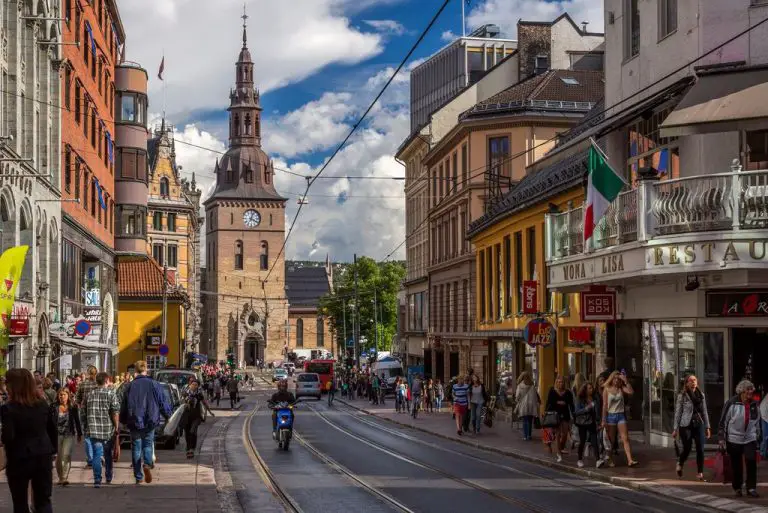
The layout of the capital of Norway is particularly compact, it is easy to navigate. As for the sights, there are many of them in Oslo – a thorough study will take a lot of time. And what to see in Oslo in 2 days when the time spent in this city is limited? This article presents a selection of the most interesting sights of the capital of Norway, which it is advisable to see first.
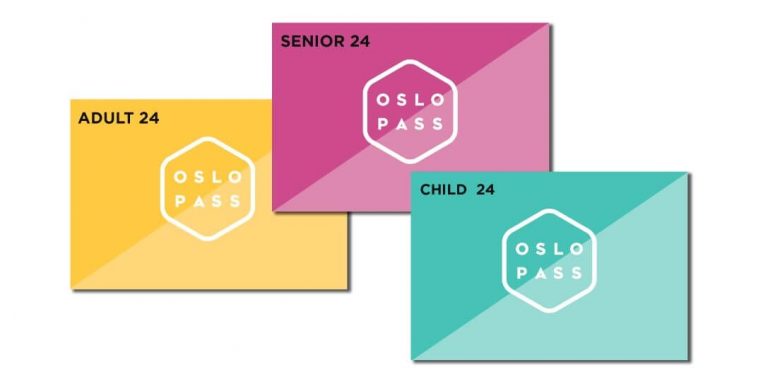
By the way, you can save a lot on visiting attractions in Oslo if you buy a Oslo Pass travel card . The math is simple: the Oslo Pass in a 24-hour version costs 270 kroons, that is, with an average ticket price of 60 kroons, it is enough to visit only three museums to make it pay off. In addition, with Oslo Pass, public transport is free, while the price for a daily pass is 75 kroons.
You can plan your route in the Norwegian capital in advance, visiting the sights in a convenient manner. To do this, simply use the Oslo map with attractions in Russian, which is located at the bottom of the page.
Opera theatre
The Oslo Opera House is very young – it appeared only in 2007. It stands on the banks of the Oslo Fjord, with a small part of it entering the water.
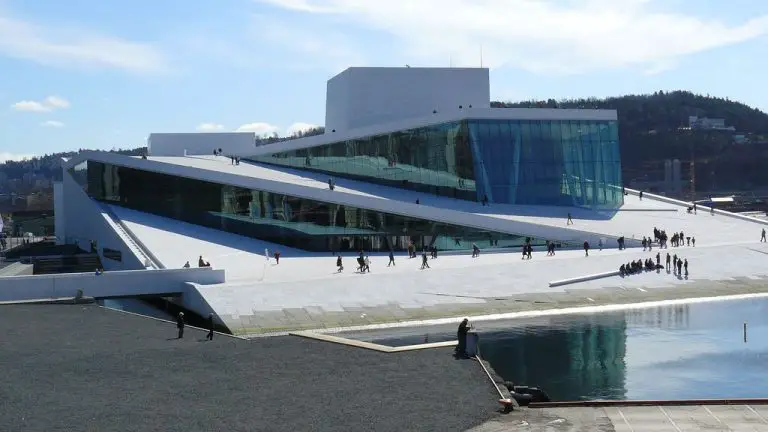
The Opera House is the largest public building in Norway, erected since the time of the Nidaros Cathedral, which took place in 1300.
A more detailed description of the Oslo Opera House on this page .
Sculpture Park and Vigeland Museum
Gustav Vigeland is famous not only in Norway, but also all over the world of sculptures, who left behind a rich cultural heritage.
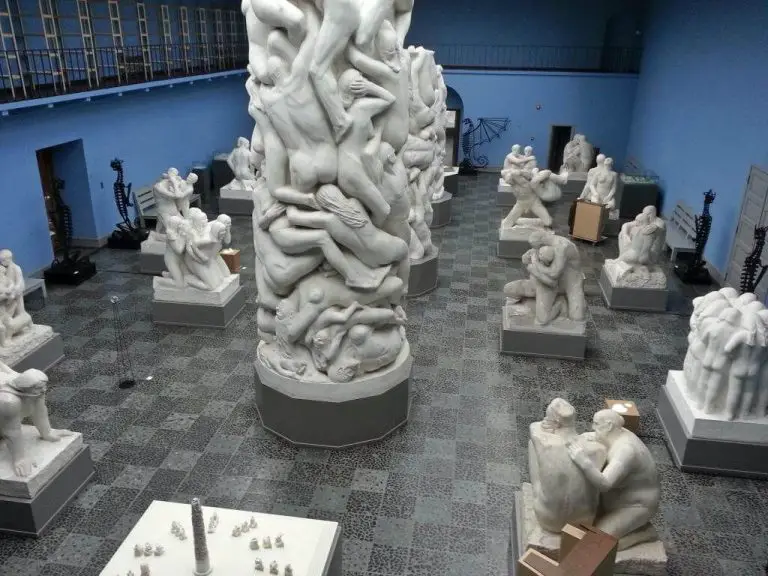
In the house where Vigeland lived and worked, now you can see many interesting exhibits: 12,000 sketches of the master, 1,600 marble and bronze statues, 800 models of plaster and 400 wooden engravings.
Oslo has an amazing sculpture park of Vigueled, which is part of the huge Frogner Park. There are 227 sculptural compositions that convey a variety of human conditions. This park, which occupies 30 hectares, and is now famous in Norway, was founded by Vigeland in 1907 – 1942.
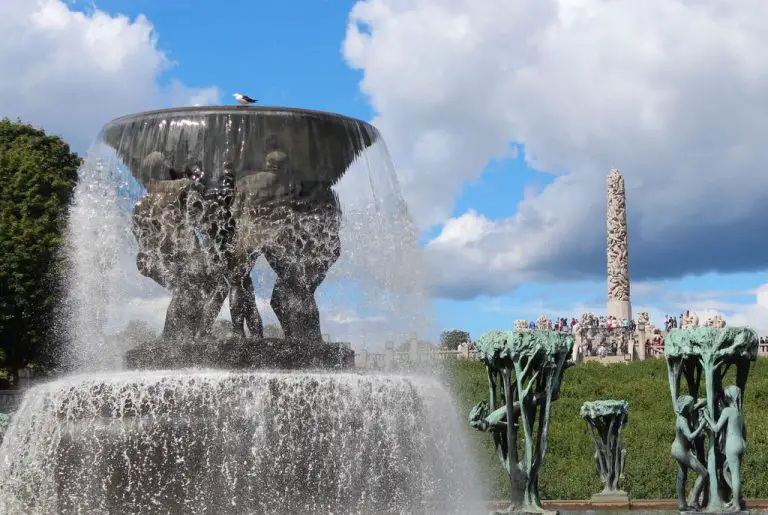
A detailed description of Vigeland Park with a photo can be found here .
Ekeberg Park
The Oslo landmark deserves a separate description, where the photos are unusually bright and original. We are talking about the Ekeberg park, where you can relax and watch a lot of interesting things.
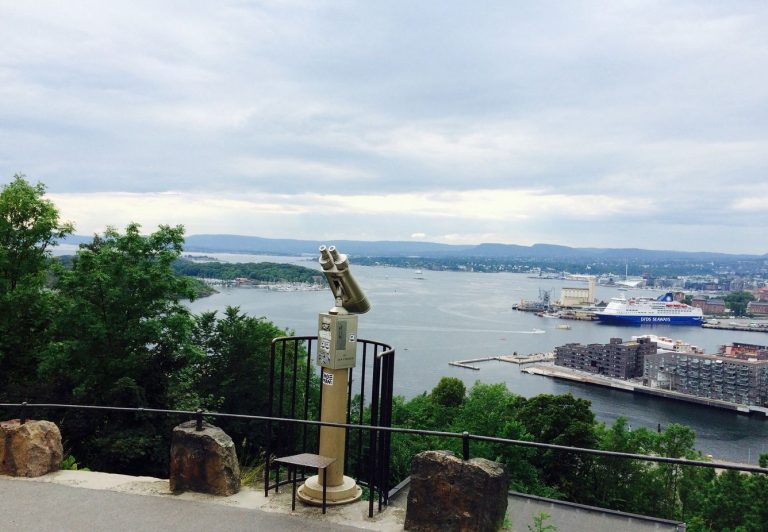
Ekeberg can be called a forest rather than a park; the wildlife and fresh air are so good there. Ekebergparken is located on a hilltop, so from the observation deck you can see beautiful views of the city and the Oslo fjord.
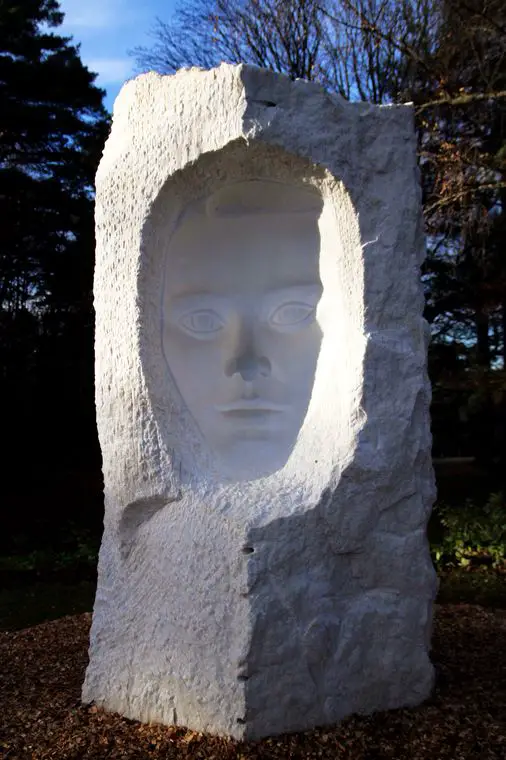
In the most unexpected places of the park there are ambiguous sculptures and installations – these sights sometimes cause completely conflicting feelings. Many people are interested in the sculpture “Face” – it “turns” in the direction in which the person looking at it goes. Be sure to look at the talking lantern, which carries a kind of nonsense in a pleasant sensual male voice – but fun. Not far from this exhibit there are silver figures that seemed to hover in the air: their legs are like people, and everything above their waist looks like ice cream. On the park path stands a sculpture of a walking Chinese woman, there is an ace of tambourines rotating around its own axis, and you can also find a mini-fountain depicting the figure of a pissing woman.
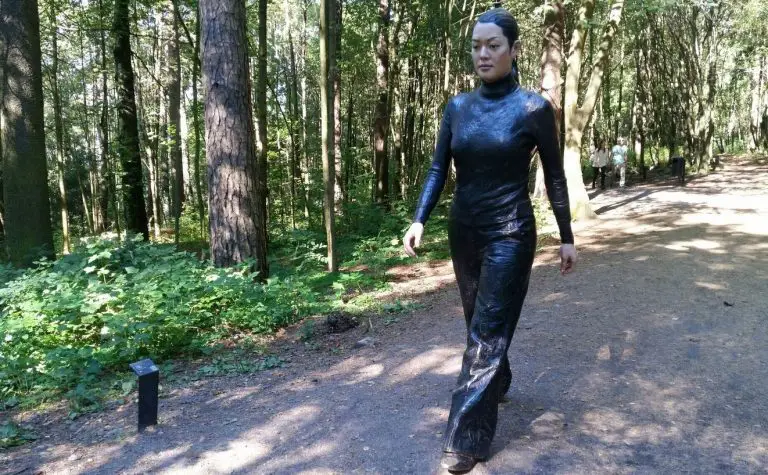
The park has an excellent restaurant where you can eat deliciously. It will be interesting for children to visit a farm with tame animals and ride horses there. There is also a small rope track for the kids, and this attraction is completely free. And on Saturdays, for children 100 kroons, they conduct educational classes.
You can visit Ekebergparken to see all its attractions at any time of the day, any day of the week.
The park is located on the eastern edge of the capital of Norway, at Kongsveien 23. From the center of Oslo, you can walk to the park by climbing a steep path and stairs, or take tram 18 or 19 in 10 minutes to the Ekebergparken stop.
Grunerlokka District
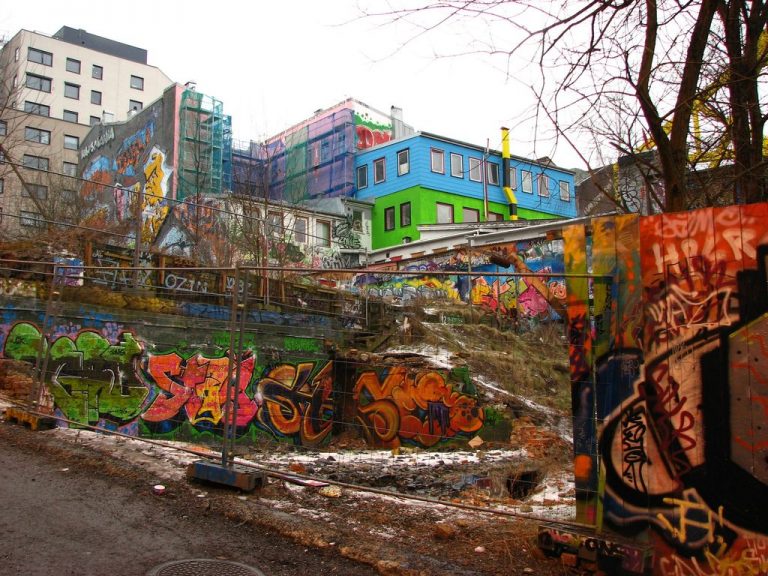
One of the most interesting sights of Oslo on the map is marked as “Grunerlokka district”. From the city center to this area can be reached in a few minutes by tram number 11, or you can walk on foot, spending 25-30 minutes on the road.
It used to be an industrial suburb where factories and mills were located along the Akerselva River. Over time, the area fell into decay, becoming a hotbed of drug trafficking and a criminal ghetto. In the late 1990s, city authorities gentrified, making Oslo a popular youth district with vintage boutiques, creative cafes and bars.
In the evenings of Fridays and Saturdays, cafes and restaurants located on the elegant Olaf Square gather visitors who wish to have a bright time, drink plenty and have fun.
The Grünerlokka district is the best place in Oslo to get to know the natives and have a casual conversation with them over a glass of local beer.
In the Norwegian capital, nowhere else will it be possible to acquire such original, hand-made souvenirs and jewelry. In this area there are many colorful picturesque shops, art studios and galleries, antique shops – and this is also a kind of Oslo attraction.
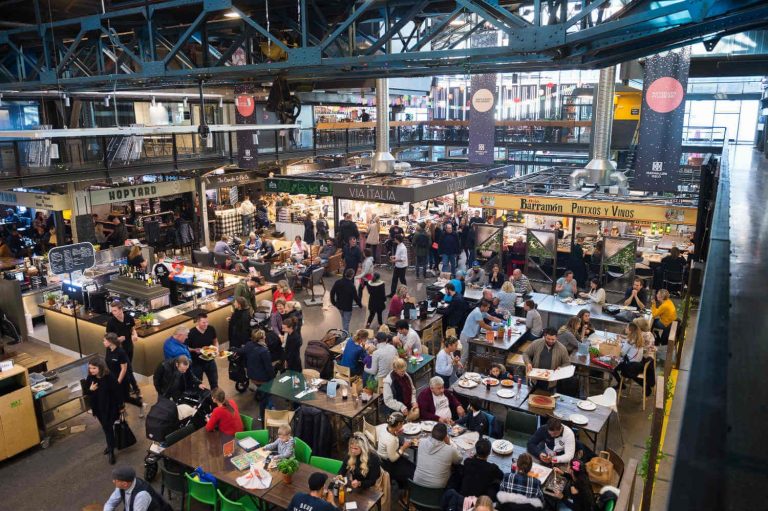
Do not lose sight of the Matthalen market. There are a lot of neat shops selling a variety of local delicacies, coffee shops are working in which, directly at the visitors, they prepare food from the freshest products – all this is very tasty and completely inexpensive. If you want haute cuisine, then literally after 50 meters the Kontrast restaurant, marked by the Michelin star, is open.
On Sunday morning, there is another reason to visit the Grunerlokka district. We are talking about the Birkelunden flea market. Residents of this country come here from all over Oslo and even from other cities in Norway, hoping to find some rare thing to decorate the interior, or just to see a rich assortment of products and chat with people.
Royal Palace
In the list of Oslo’s main attractions there is also the Royal Palace (construction time – the first half of the nineteenth century), located at Slottsplassen 1.
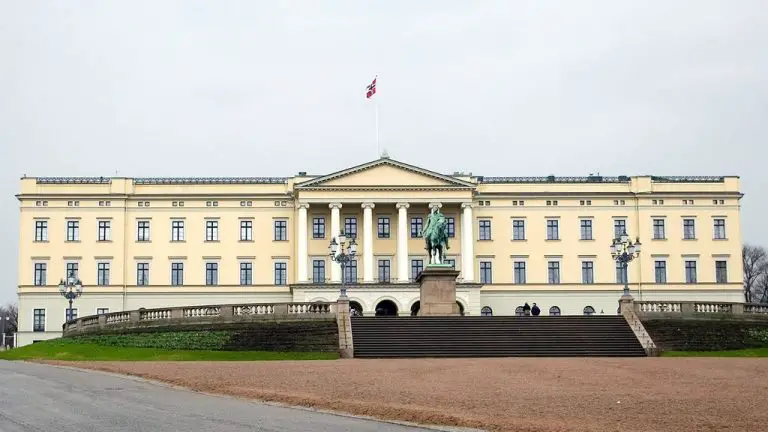
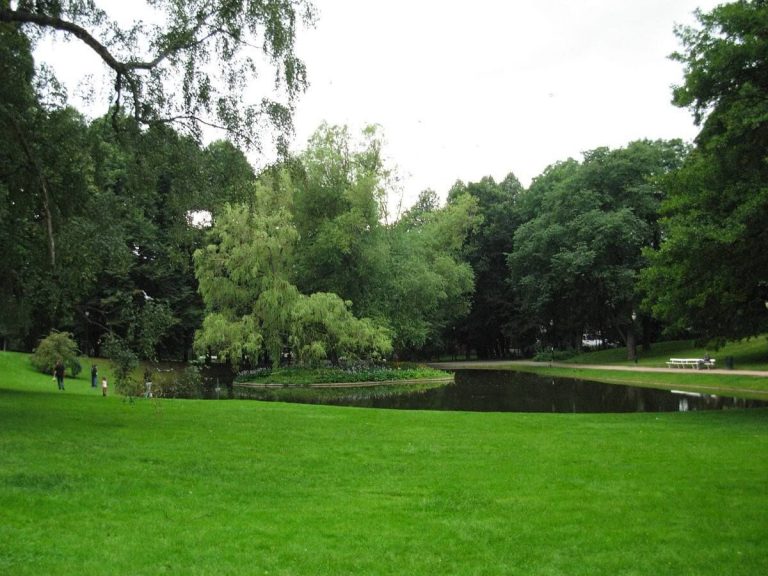
Around the building is a picturesque Slottsparken park with small ponds and many pretty sculptures. Slottsparkenz is one of the favorite places for residents of the Norwegian capital who come here to sunbathe, play a ball, just sit and relax on a bench. Absolutely everyone can see the beautiful landscapes of the park, admire the Palace Square, sit on the steps of the palace, watch the guards in dark blue vests with green epaulets and in bowlers with feathers. And the entrance to the interior of the Royal Palace is possible only as part of a guided tour – they are held in the summer, from July 20 to August 15. The cost of excursions: for adults 150, for children from 7 to 17 years 75 NOK.
Norwegian Parliament
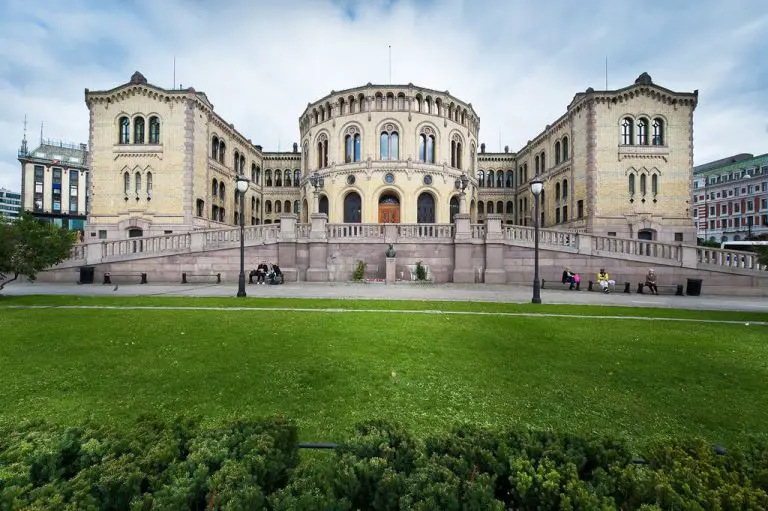
Opposite the Royal Palace, along Karl Johans gate 22, is another city attraction. This circular structure with wings on the sides was erected in 1866 according to the drawings of the talented architect Langlet from Sweden.
This building is “guarded” by beautiful sculptures of two lions, which are also a kind of attractions. Their author, Christopher Borch, is a prisoner of Akershus fortress, sentenced to death, thanks to this work he was pardoned.
Entrance to the Norwegian Parliament is free. Guided tours are organized in the interior.
Town Hall
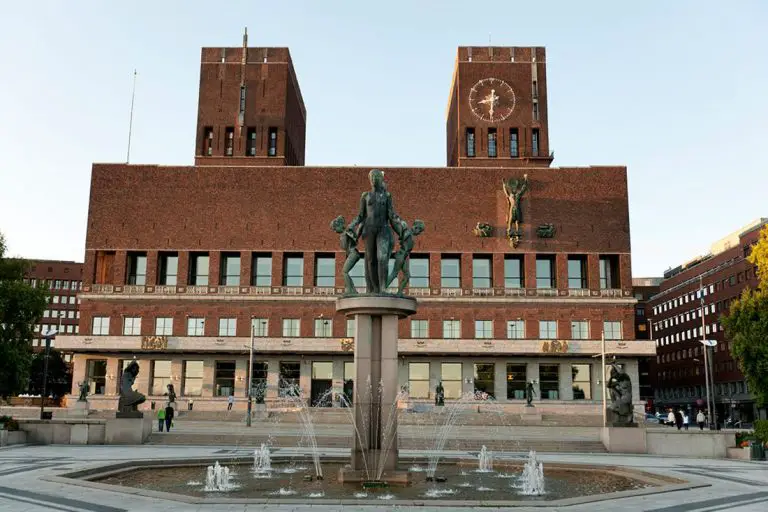
Construction work on the construction of the town hall ended in 1950, on the eve of the 900th anniversary of the capital of Norway.
Inspect this attraction from the facade, where unusual astronomical clocks are located. The towers of the town hall vary in height: western 63 m, eastern 66 m. In 2000, 49 bells were installed in the eastern tower, which ring hourly. Together with the tour, you can climb the bell tower and see the panorama of the Oslo Fjord from there.
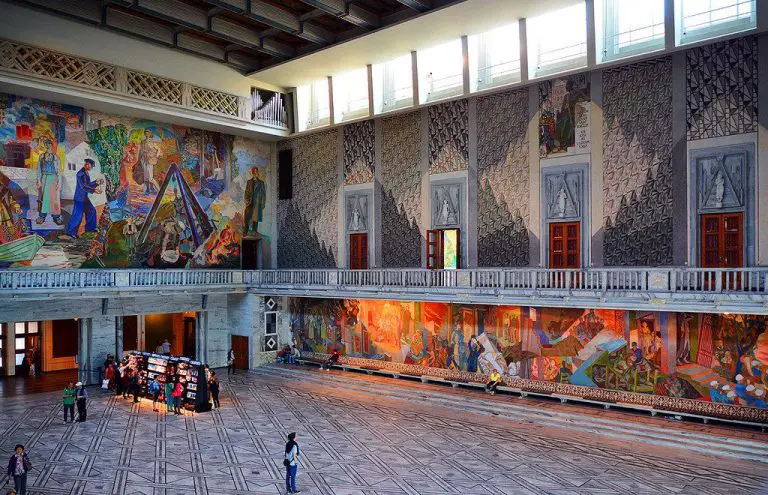
On the 1st floor is the Great Hall and the Long Gallery. On the 2nd there are 7 halls – art exhibits of Norwegian masters are exhibited there. The city hall, this landmark of Oslo, the capital of Norway, is known throughout the world, because in its Ceremonial Hall every year they are awarded the Nobel Prize.
The Town Hall is located on the banks of the Oslo Fjord: Fridtjof Nansens plass.
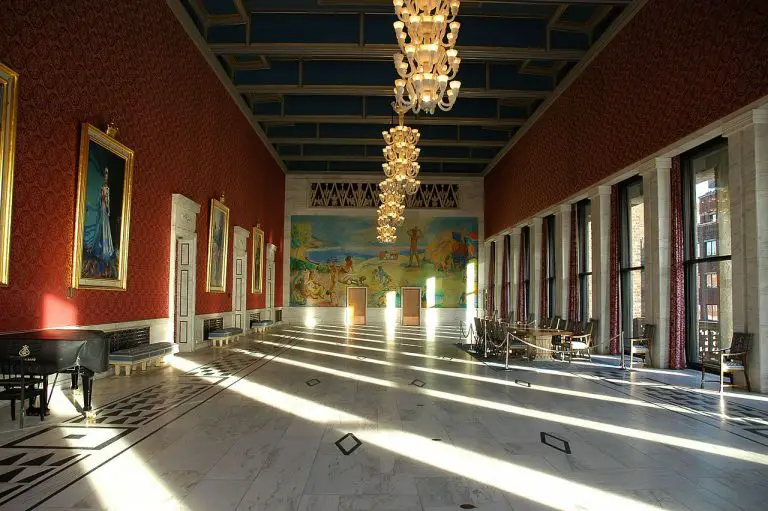
It is open daily from 9:00 to 16:00, and in June – August from 9:00 to 18:00. No ticket needed, admission is free .
Guided tours of the interior of this attraction are organized from June to July every day at 10:00, 12:00 and 14:00 (guides speak English). The cost of the tour is 1,500 NOK. Ascent to the bell tower is organized in the same period, it starts without 20 minutes every hour.
Museums in Oslo
In the capital of Norway there are a lot of interesting museums. It is impossible to visit them all in 2 days, so it’s best to choose several of Oslo ’s 10 most interesting museums . What all the tourists rush to see in Oslo is the Fram Museum, the Viking Ship Museum and the People’s Museum. All of them are located on the Peninsula of Bugdei.
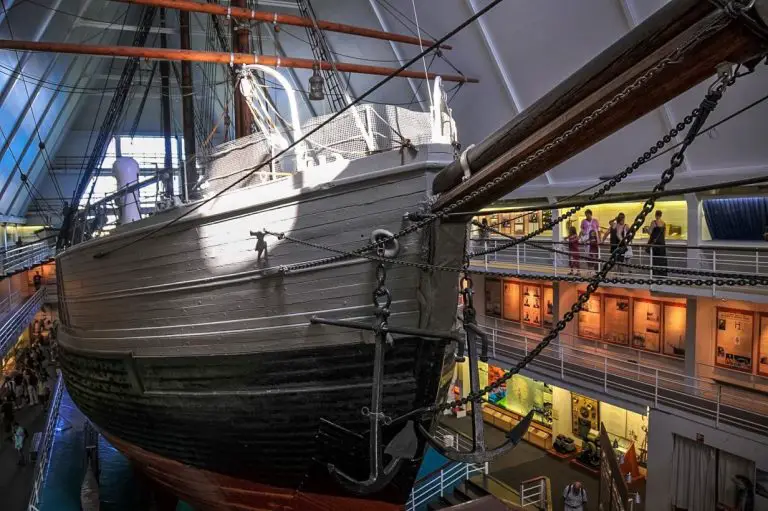
Here you can see:
- the ship “Fram”, on which important discoveries were made important discoveries;
- the ship Gyoya, which paved the way between the Atlantic in the Pacific Ocean;
- the ship “Maud”, created specifically for the expeditions of polar explorers.
The Viking Ship Museum is part of the History Museum, operating at the University of Oslo. The main exhibits are 3 rooks, which were sunk more than 1000 years ago. Experts say that they were built in the 9th century.
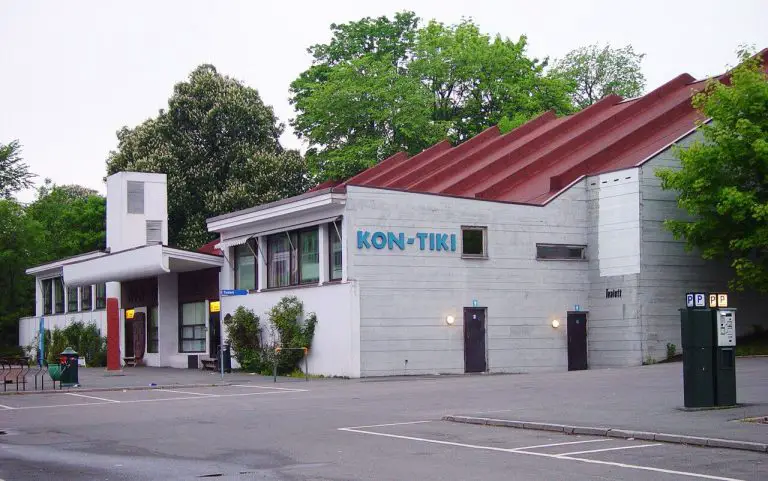
This attraction is also located on the Bugdei Peninsula (the exact address is Bygdoynesveien, 36), but you need to tell about it separately.
The honorary wooden raft Kon-Tiki, on which the brave traveler from Norway Thor Heyerdahl and five of his comrades sailed across the Pacific Ocean, is the most interesting exhibit. Along the perimeter of the hall there are many materials telling about this expedition: recollections of team members, photographs, maps.
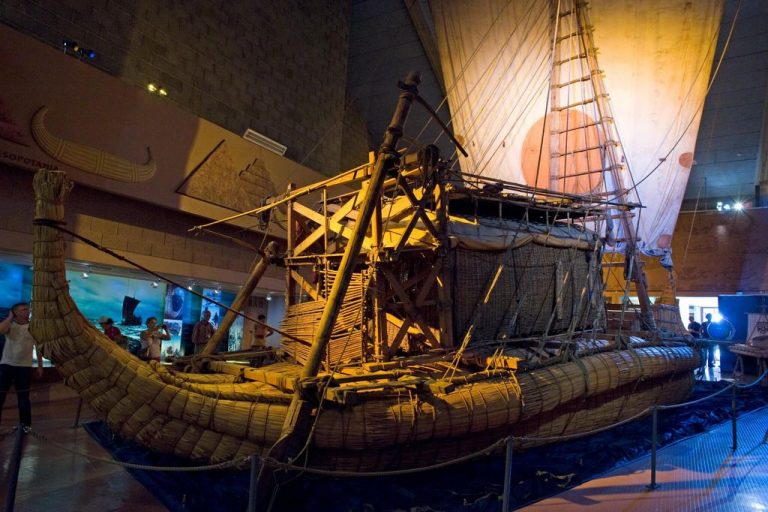
Heyerdala was researching Easter Island, how Robinson lived on Fatu Hiva islands, and also traveled on the Ra and Tigris boats made of reed – which means that visitors to Kon-Tiki still have something to see. Be sure to go to the Whale Shark Hall: there you can look at the scarecrow of a huge predator that the Kon-Tiki crew met in the Pacific Ocean.
- You can see all the exhibits every day (no days off).
- The entrance ticket will cost 100 CZK, for children from 6 to 15 years – 40 CZK.
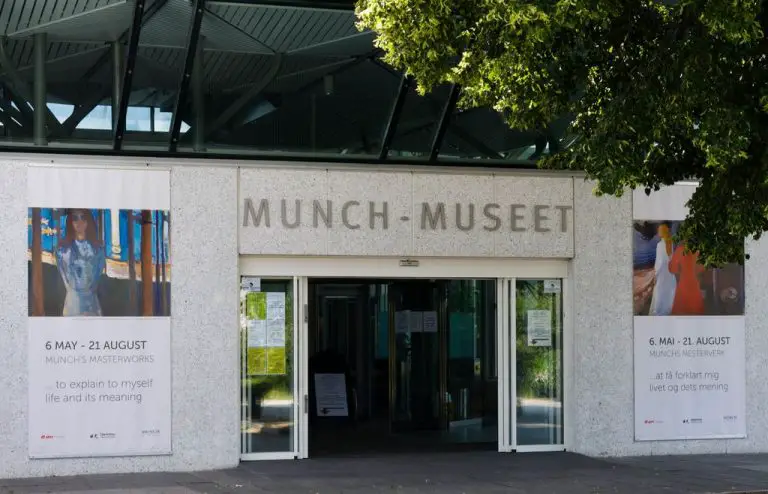
The exhibits displayed here become a real discovery for many: it turns out that Munch created many works in addition to the world-famous painting “The Scream”.
The total number of exhibits is 28,000, including more than 1,100 paintings, 7,700 drawings, 17,800 posters, over 20 sculptures, many photographs. By the way, most of the artist’s paintings can not be attributed to the positive.
Visitors can also watch documentaries about Munch’s life and work.
- Attraction Address: Oslo, Toyengata, 53.
- You can visit the object and see its exhibits daily, and in winter it works from 10:00 to 16:00, and in the summer for an hour longer.
- Adults will cost 100 CZK, children under 18 years old admission is free.
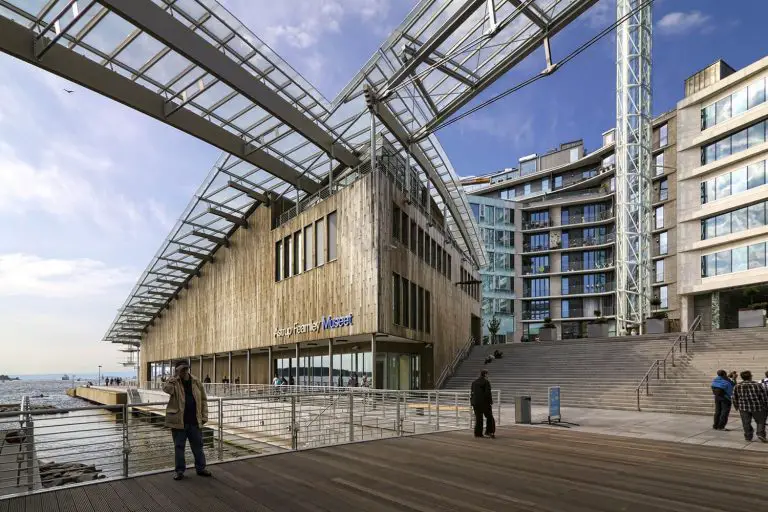
About 5,000 exhibits are constantly exhibited here: we are talking about paintings, photographs and sculptures by masters of Norway and European countries, who worked after 1945. But many art fans are more interested in temporary exhibitions, information about which can be found on the museum’s official portal (nasjonalmuseet.no).
There is a shop on the territory of the complex, on the shelves of which a large assortment of books on art and photos of Oslo and Norway sights are presented.
- The facility is located in Oslo at Bankplassen 4.
- Admission is 120 CZK for adults , 80 for students, and children under 18 can see all exhibits for free.
Prices in the article are for March 2018.
Oslo sights and museums on the map in Russian.
An interesting video about Oslo with high-quality shooting and editing. Enjoy watching!